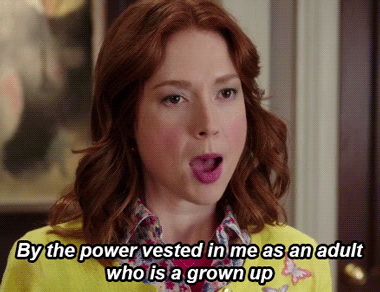Mixed Up Money
START TRACKING YOUR SPEND
Get to know where you spend, how it makes you feel and what really matters when it comes to your money!
Grab your freebie!
Blog Categories
Let's stop pretending that being good at money means you need to be good at math. Instead, let's listen to our body and our mind.
Hi, I'm Alyssa Davies

You can save, because you are a bad-ass, super-human, money-saving angel
Hello, all! Alyssa here, just living life as a mother circa week number two. As you know, I’m currently taking a six-week hiatus to embrace my child and enjoy these special moments with my husband. Fortunately, for both myself and for my readers, I have some awesome female friends who love money just as much as we do and they’ve willingly shared some of their favourite blog posts. This week, two badass babes, Piggy & Kitty from Bitches Get Riches, have generously shared their insight about how small savings habits can add up — fast.If you’d like to still chat with me (even though I’m not as cool as these ladies), you can join me on Twitter or Instagram for small life updates and cute pics XOXO. Now let’s get to the good stuff.
“If you don’t start saving your money when you’re young, you’re going to die impoverished, overworked, and alone!” says every personal finance blogger ever to young people just starting out in the world.

And while it’s only a slight exaggeration, this kind of enormous pressure can be overwhelming and demoralizing when you’re just starting to get your financial life under control and barely bringing in enough money to make ends meet.
So what’s a young, financially inexperienced person to do? What’s anyone with bills and debt to do with the spectre of an empty savings account looming and no solution in sight?
The answer, as with most personal finance, is to start small. Because when saving, your little savings really do add up.
What we talk about when we talk about saving
When you get down to it, there is really only one way to “save” money: by not spending it. You can be creative in your method of non-spending. You can cancel memberships and subscriptions, you can clip coupons, you can walk or bike instead of driving, you can reduce your spending in general or look for discounts and freebies in particular. And at the end of this labour-intensive process, you will have “saved.” Congrats, you’re a responsible adult!

But if you then turn around and spend those savings on something else, then, well… they’re not really savings, are they? Even if you just ignore your savings and let them sit in the same bank account as the money you spend on all your expenses, they’ll eventually get used up or forgotten.
So the trick is to actually save your savings.
Every time you save money, put it in your savings account (or your mattress, depending on your personal level of paranoia and/or facility with online banking). Literally, save it. You just got a free coffee with your frequent buyer card at the coffee shop? Awesome! Transfer the money that coffee would have cost you into your savings account. You just saved $8 on parking by taking the bus instead? Way to go, you splendid phoenix of fiscal and environmental responsibility! Put it into savings.
These kinds of small, single-digit savings occur all the time if you’re paying attention and putting at least a little effort into reducing your spending. And by themselves, they’re minuscule. But if you’re starting at the stage where moths fly cartoonishly out of your pockets any time you look for a little extra cash to put away for the future, it’s huge.
These kinds of small, single digit savings occur all the time if you’re paying attention and putting at least a little effort into reducing your spending. And by themselves, they’re miniscule. But if you’re starting at the stage where moths fly cartoonishly out of your pockets any time you look for a little extra cash to put away for the future, it’s huge.
Yesterday I saved $10 on my grocery bill between coupons and my Kroger membership, an amount helpfully pointed out on my receipt. Ten whole dollars! Yippee! Three cheers and a tiger!
I could’ve taken that to mean that I was justified in treating myself to a refreshingly cold beer or two at the brewery after work. But instead, I thought about my dreams to travel abroad… and transferred it into savings. It’s not enough to buy a plane ticket to Argentina, but multiply it by my weekly grocery bill for an entire year and I can practically taste the grass-fed beef and locally sourced Malbec from here!
It really does add up, you sparkling diamond of creative thrift
I’ll be honest: I get a little fed up with friends who express a desperate need to build up their savings but then wave off the monthly cost of a Spotify membership or nightly take-out as not a big deal because it’s only a small amount of money. “It’s only $10 a month!” they say. Because while it’s totally fine to pay $10 a month to not have one’s music constantly interrupted by commercials that must have been specifically engineered for maximum irritation, it’s willfully ignorant to pass up every such small opportunity to save money.
Making multiple efforts to save small amounts of money can and does lead to a substantial lump sum in your savings account. But you have to actually take those opportunities for small savings when they arise. Biking instead of driving? Buying generic instead of name brand? Cutting conveniences and subscriptions? Using coupons? You can’t dismiss them all just because they seem like a pittance in isolation.

A few years ago I took a good hard look at my spending to see where I could eliminate multiple small expenses in order to save money. I thought I’d maybe save a couple hundred annually. To my delight (and consternation at Past Me for taking on such expendable costs in the first place) I was able to save over a grand. Take a look:
| EXPENSE | MONTHLY COST | ANNUAL COST |
| Gym membership | $30 | $360 |
| Barnes & Noble membership | $25 | |
| Name brand prescription | $10 | $120 |
| Eating lunch out during work week | $45 | $540 |
| Driving more than 4 days a week | $11 | $132 |
| TOTAL ANNUAL SAVINGS: | $1,177 |
Some of it was simple—canceling my gym membership involved a single phone call and the willingness to run outside. Changing my prescription medication from name brand to generic involved a few more phone calls and made me appreciate my insurance plan. Just not eating lunch out only required the extra effort to not be lazy and make sure I packed a lunch every single day and it made the biggest impact!
Some was a little more complicated. I calculated the daily cost of commuting a total of 40 miles between my home and office and realized that if I was able to work from home one day per week not only would I save money, but I’d save a life because it was only a matter of time before I murdered someone in a fit of rush hour road rage. Well worth it. So I talked to my boss and got work-from-home Fridays written into my contract. Money, time, and sanity saved.
BOOM. $1,177 in the bank. That’s three round-trip flights home to visit the parental units! That’s a new computer! That’s a great start to a down payment on a car or a house!
Just keep swimming
And if you factor in all those other little savings—grocery store coupons, biking instead of driving, using the library instead of buying books and media, buying something on sale or off the clearance rack, rounding up to the nearest dollar—it adds up even more. It’s the same theory as putting all your coins in a change jar: add to it little by little, watch it grow, and with patience you suddenly have that safety net of savings that felt so impossible before.
It’s not easy, it’s not fast, but along the way, you will develop habits and thrifty muscles you didn’t even know you had. You can save, because you are a bad-ass, super-human, money-saving angel and it’s time you accepted this truth about yourself, goddammit.
Oh no, you missed the live webinar! But, good news: Mixed Up Money is pleased to share a resource for anyone planning for a future child or family.
financially preparing for baby
Mixed Up Money is pleased to share a free resource for anyone looking to cut back on non-essential spending. My most-requested product is these monthly calendars to share on your Instagram story, use as a phone background, or print off to track your spending habits.
